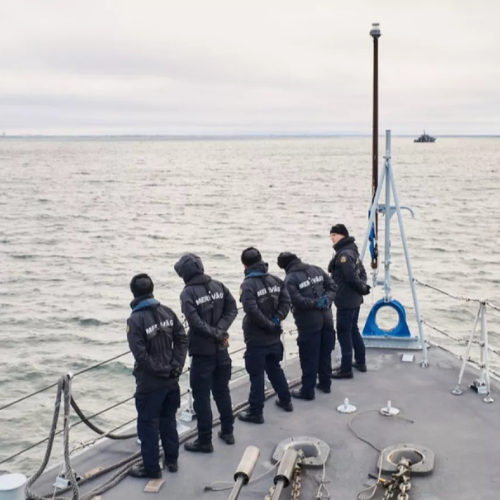A Russian ship under international sanctions was caught performing “suspicious” movements near an important underwater power cable that connects Poland to Sweden. This cable is a major part of the power network in the Baltic Sea region, helping electricity flow between the two countries.
Polish Prime Minister Donald Tusk announced the incident on May 21, saying that the Russian vessel was operating dangerously close to the cable before the Polish military took action. After the military’s intervention, the ship turned around and headed back to a Russian port. Tusk also confirmed that the Polish survey ship ORP Heweliusz was sent to the area to investigate what had happened.
This event happened just one day after the European Union rolled out its 17th package of sanctions against Russia. These new measures are focused on stopping what the EU calls hybrid threats — a mix of military and covert actions — and specifically target nearly 200 ships believed to be part of Russia’s so-called “shadow fleet.” This fleet reportedly moves oil and goods secretly to help Russia avoid Western sanctions.
Taiwan Captures China-Crewed Ship After Suspicious Undersea Cable Cut
A Rising Concern in the Baltic Sea
This incident adds to a growing list of suspicious activities in the Baltic Sea. In recent months, there have been several cases where undersea cables were damaged or disrupted, affecting both communications and energy systems. While some of these incidents might have been accidental, experts and officials say that too many strange things are happening for it to be just bad luck.
These undersea cables are crucial. If damaged, they could cut off electricity or internet between countries. That’s why movements by sanctioned ships near such infrastructure are treated very seriously.
The Russian vessel involved in this case is believed to be part of a network of ships that continue to operate despite being banned under international rules. These ships, often labeled as part of a “shadow fleet,” help Russia move oil and other goods to markets it is officially cut off from. This activity allows the Russian economy to stay afloat and supports its ongoing war in Ukraine.
The European Union hopes the new sanctions will make it harder for these ships to operate. By targeting the vessels directly, the EU aims to weaken Russia’s ability to sell oil and get around sanctions through secretive methods.
German Warship Cables Mysteriously Cut at Naval Shipyard in Rostock
European Response and Security Measures
After the incident, more attention is being paid to the Baltic region. European countries are now boosting security and keeping a closer watch over their waters. Military patrols have increased, and more resources are being used to monitor undersea infrastructure.
Germany has also voiced strong concerns. German Foreign Minister Johann Wadephul said that these covert Russian shipping operations are a “direct security threat.” He explained that the European Union is cracking down on this “shadow fleet” and stepping up efforts to stop vessels that help Russia dodge restrictions.
Wadephul also emphasized that stopping these ships isn’t just about rules — it’s about protecting Ukraine. Every day that these ships move oil, Russia earns money that it can use to continue its war. Cutting off that support is seen as an important part of helping Ukraine defend itself.
The response to the latest incident shows that European nations are united in their efforts to protect vital infrastructure. The quick action by the Polish military, followed by the dispatch of ORP Heweliusz, highlights how seriously the threat is being taken. With high-tech systems and constant monitoring, countries are working to make sure their seas — and what lies beneath them — are safe from interference.


